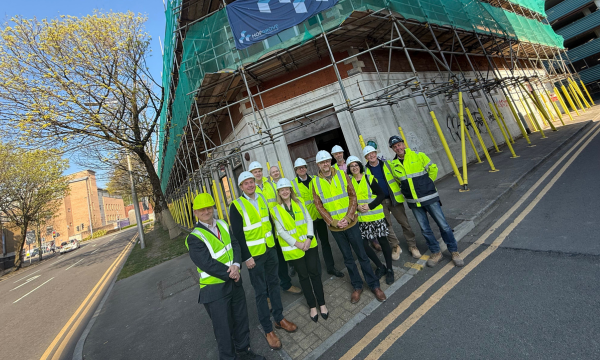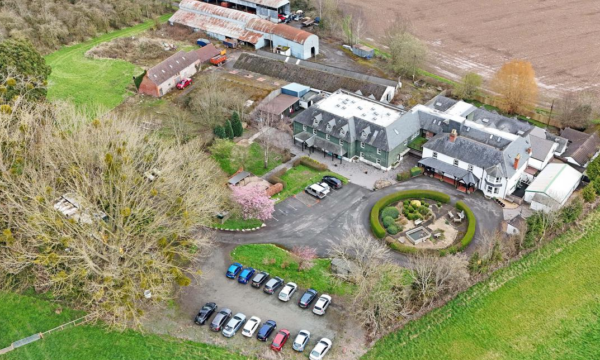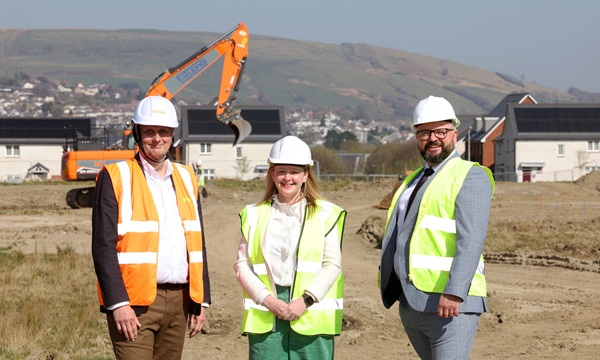
GUEST COLUMN:
Ifan Glyn
Director
Federation of Master Builders (FMB) Cymru

As Director of the Federation of Master Builders Cymru, I speak to SME builders daily, and their message is clear – our industry is facing a perfect storm. Rising costs, chronic skills shortages and project setbacks are pushing many local building firms to the brink.
Recent surveys revealed that:
- Skilled workers are scarce. 36% of small builders are struggling to hire needed trades like carpenters and bricklayers.
- Costs have surged. 64% report that material and wage bills have jumped, squeezing already thin margins.
- Projects are stalling. Nearly half of builders have had to delay jobs due to labour or material shortages, and over a quarter have cancelled projects entirely as costs spiral out of control.
- Profits are plummeting. With expenses up and work delayed, nearly half of firms say their business is now on track to make a loss or fall below expected profit.
These figures represent local Welsh builders having to tell clients that timelines must slip or prices must rise, through no fault of their own. Builders are postponing family home extensions because bricklayers or roofers are unavailable, or watching their small business profits evaporate due to rampant inflation.
This is the everyday reality for too many of our master builders. Unless conditions improve, many firms will be forced to scale back, lay off apprentices, or close their doors. Our construction SMEs are being forced into survival mode at the very moment we need them building the homes of the future.
Small and medium-sized builders have long been the backbone of homebuilding in Wales, delivering the homes we live in and the improvements that make them livable.
When SMEs struggle, housing delivery plummets. The latest figures show that Wales built only 4,756 new homes in 2023/24, nowhere near the 6,200-8,300 homes per year Welsh Government estimates we need to meet demand. Year after year of under-delivery has compounded into an acute housing shortage.
The Welsh housing market is under unbearable strain. House prices have hit all-time highs, with the average home in Wales now costing around £240,000, putting home ownership out of reach for countless first-time buyers. Those who can scrape together a deposit face fierce competition and rising interest rates. Those who can’t are stuck paying sky-high rents. Private rents in Wales jumped about 8% in the past year alone, as too many renters chase too few properties.
The lack of supply is felt even more painfully at the social end of the market. Over 11,500 people in Wales are living in temporary accommodation and more than 139,000 households are on social housing waiting lists. These are families crowded into B&Bs because no council houses are available, young couples living with parents well into their 30s, and key workers moving away because they can’t find an affordable home. Every delayed extension or cancelled housing development adds to this pressure.
Wales cannot fix its housing crisis if its small builders are left to fail; action is needed to shore up the SME construction sector. That means robust support from the Welsh Government.
Builders across Wales are doing everything they can to keep projects going despite increasing material costs, delays and wage inflation, but they cannot weather this storm alone. Policymakers must introduce a bold plan to help local builders build. This includes both immediate financial relief and longer-term policy reforms: a survival and growth package for Welsh construction SMEs.
The Welsh Government has taken some steps. The 2025-26 draft budget increases capital spending for affordable housing to £437 million – a significant commitment that could offer opportunities to SME builders involved in social housing delivery. The government is also due to introduce a new Building Safety Bill before summer 2025, which will modernise the regulatory environment and focus on risk in multi-occupancy buildings. These are positive moves. But for many SMEs, the most immediate concern is workforce.
The skills shortage in construction is critical, with over 9,000 additional workers needed in Wales by 2027. Yet, apprenticeship support has been inconsistent. The Welsh Government’s recent cuts to apprenticeship funding were a blow to the sector, particularly when every new tradesperson counts. Ministers must reverse those cuts, expand support for training, and promote vocational careers from an early age. This is an industry where young people like Callum Jones from MJ Lewis – shortlisted for Apprentice of the Year at the Cymru Master Builder Awards – can find a trade, a livelihood, and a future. Wales needs more Callums.
Planning reform must follow. It is encouraging that reform is on the Government’s radar, but it must lead to faster decisions, fewer blockages, and better resources for local authorities. Every week spent waiting for approval can mean the difference between a viable project and one that’s financially unworkable. Planning must become a facilitator of growth, not a barrier.
Despite all these challenges, Welsh builders continue to persevere. They are finding creative ways to keep projects moving – securing alternative suppliers, retraining workers, absorbing cost increases – because they take pride in their craft and care about their clients.
It is important to recognise and celebrate these efforts. At the 2025 Cymru Master Builder Awards, we did exactly that. We shone a spotlight on outstanding projects that show the best of Welsh construction in difficult conditions. From an ultra-efficient Caerphilly Mountain smart home that showcases cutting-edge design and sustainability built by Project One, to a beautiful Penarth extension by Atlantic Dwellings that has transformed a family’s living space, to Excel Home Design’s ingenious attic conversion of a historic property in Flemingston. We also honoured the people behind the work, like apprentice Callum Jones, whose commitment and skill reflect the best of our industry. These builders and projects prove that excellence is still being delivered across Wales. Even more could be achieved with a stronger policy environment.
The builders of Wales have not given up. Let us match their resilience with real action. Support our SME builders, ease cost pressures, train more workers, and unblock the planning system. In return, they will deliver the homes and vibrant communities that Wales so urgently needs. Our local builders are ready to help solve the housing crisis. Remove the barriers and let them get on with the job. With government action and the determination of our construction SMEs, we can turn today’s construction challenges into a stronger, more resilient industry.













